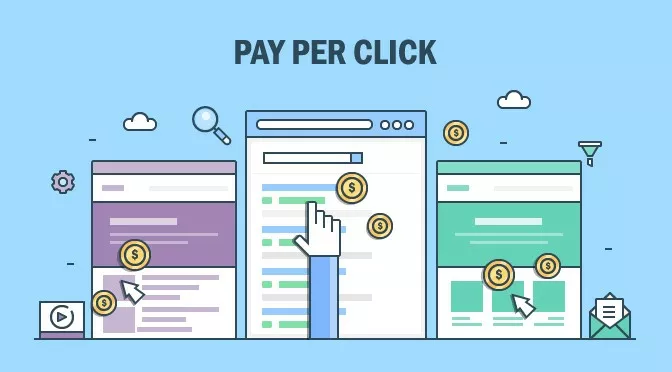
Does your company utilize pay-per-click (PPC) advertising? If so, click fraud detection should also be something your company utilizes. It should be nonnegotiable. Whether you implement PPC ad campaigns every week or just a few times per year, you need to be aware of any attempts to defraud you.
Click fraud detection utilizes techniques and software capable of identifying a variety of click fraud strategies. Fraud Blocker is one of the leading software packages, and it has been designed to combat click bots, click farm scams, fraudulent clicks by competitors, fake leads, and more.
If your company utilizes PPC advertising but puts no effort into click fraud detection, it is time to change things. Here are four reasons explaining why:
1. Fraud Depletes Marketing Budgets

The most important reason to engage in click fraud detection is the simple fact that click fraud depletes marketing budgets. If you do not understand why, step back and think about how you pay for your PPC ad campaigns. You pay for every click an ad garners.
Fraudulent clicks are initiated by people or software without any intention to actually visit your site and buy something. Clicks are generated only to create revenue for the fraudster. You spend money on clicks that do not turn into paid orders. That is money down the drain.
Losses Can Be Huge
No losses related to click fraud are acceptable. But based on how you compete for the most expensive keywords, your losses could be huge. Again, think about your own experience. How you bid for keywords and the maximum price you are willing to pay both matter.
If Google is your main ad platform, you know that the most expensive Google keywords cost a small fortune. Investing in them is worth it when they return the results you’re after. When you are being victimized by click fraud, not so much.
Every click results in a charge. More expensive keywords translate to more expensive clicks. The end result is that fraud can deplete your marketing budget faster when your ads are built on the most expensive keywords in your industry.
2. Click Fraud Harms SEO Performance

In addition to depleting marketing budgets, click fraud also harms SEO performance. This may sound counterintuitive in the sense that search engines take traffic into account when ranking websites. Just remember that search engines also consider the quality of that traffic, too.
Have you ever read online discussions about backlink quality? When search engine algorithms attempt to rank pages in a way that will give visitors the most relevant results, one of the factors they account for is content quality. Backlink quality is part of it.
If your site enjoys significant traffic generated by backlinks hosted on other high-quality sites, that traffic works in your favor from a ranking standpoint. Likewise, a ton of traffic coming from a couple of junk sites works against you. Poor quality sites linking to yours suggests to search engine algorithms that quality might be an issue for your site as well.
Low-Quality by Default
Much of the traffic generated by click fraud comes from third-party publishers who really don’t care whether their sites rank well. That is not the point. They can generate revenue through click farms and fraud bots without anyone ever visiting their sites. Unfortunately for legitimate advertisers, those third-party websites are low-quality by default.
Your site’s SEO performance is not being helped by links or clicks from junk sites suspected to be fraudulent. Under certain circumstances, your site could even be punished by search engines looking to combat click fraud. You certainly don’t want that.
3. Click Fraud Impacts Your Customers

Everything your company does or does not do impacts your customers in some way. So if your company is unknowingly wasting money on PPC advertising due to click fraud, that’s going to impact your customers’ experiences. How? Here are just a few of the possibilities:
Higher Prices
Remaining oblivious to click fraud detection could mean spending a lot more on marketing than necessary. As your marketing budget increases, so does your overall operating budget. Making your margin means passing on the higher costs to customers through price increases.
Lack of Access
Both depleting your marketing budget and harming your SEO performance can ultimately lead to a lack of access by your customers. Let us use SEO performance as an example.
Let’s say click fraud eventually leads to your website falling from third to tenth place for the most coveted keywords in your industry. Tenth place would likely knock your site off the first page of search engine results. Whether your site ends up on page two or three doesn’t make much difference. Being knocked off the first page means the chances of your site being found by new customers are reduced considerably.
Lower Brand Quality
Excessive traffic generated by click fraud can damage your brand quality as far as search engines are concerned. Reduced brand quality can lead to a reduced online reputation. And when that happens, it is more difficult for customers to trust your brand. They begin to see it as not as good as it once was.
4. Your Competitors Benefit

If none of the first three reasons are enough motivation to implement click fraud detection strategies, perhaps this fourth reason will do the trick: your competitors benefit from your victimization. That is just the reality.
Click fraud depletes your marketing budget. It harms your SEO performance. It even impacts your customers, both directly and indirectly. Just remember that every negative effect you experience becomes positive for someone else. That someone else is one of your competitors.
Customers that no longer shop with you will shop with your competitors. Legitimate traffic you are losing to click fraud goes to your competitors’ websites. Your company’s unwillingness to implement fraud detection strategies strengthens their bottom lines.
Does your company utilize PPC advertising? If so, click fraud detection is nonnegotiable. Your company needs to be practicing it for its own survival.











